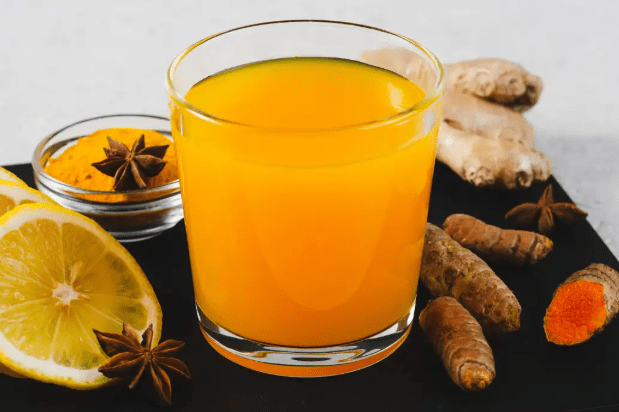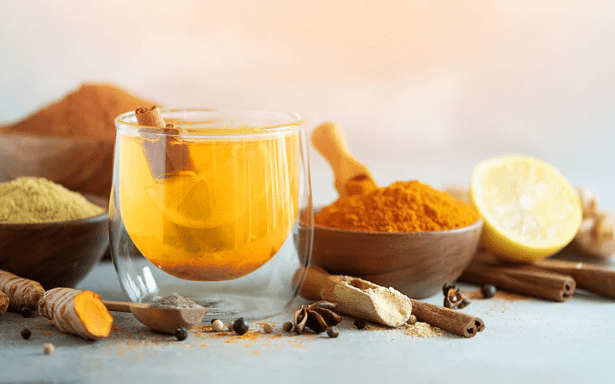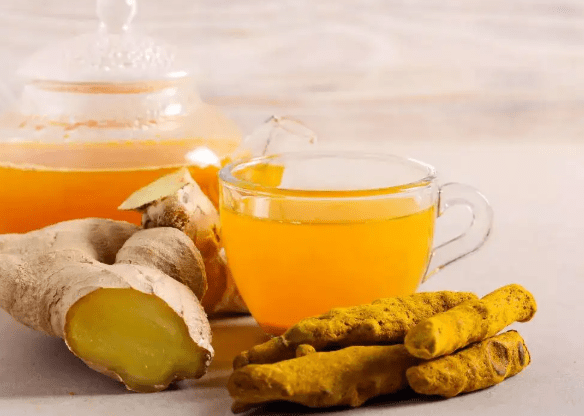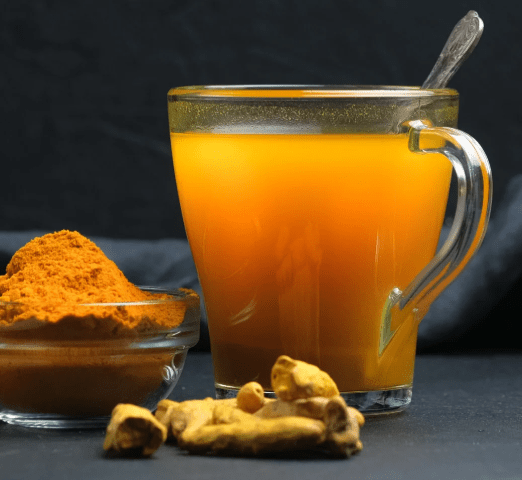What if one simple drink could transform your health from the inside out? Over 80% of adults report feeling sluggish or battling skin issues at some point, often unaware that nature holds a powerful remedy: turmeric tea. This golden elixir, rooted in centuries-old traditions, is more than a trendy beverage—it’s a science-backed solution for kidney health, glowing skin, and overall wellness. Curcumin, the active compound in turmeric, fights inflammation and oxidative stress, offering benefits that modern research is only beginning to fully understand. In this article, you’ll uncover the secrets of turmeric tea, from its kidney-protecting powers to its ability to enhance your complexion. With easy recipes, practical tips, and real-life examples, you’ll learn how to make this drink a daily habit. Ready to sip your way to better health? Let’s explore why turmeric tea deserves a spot in your routine.

The Power of Turmeric Tea for Your Body
Turmeric has been a staple in traditional medicine for thousands of years, particularly in Ayurveda. Its vibrant yellow hue comes from curcumin, a compound with potent anti-inflammatory and antioxidant properties. Studies, like one published in Nutrients (2020), show curcumin may reduce inflammation linked to chronic diseases, support kidney function, and promote skin health. Drinking turmeric tea is an easy, enjoyable way to deliver these benefits directly to your system. Unlike supplements, it’s natural, affordable, and customizable. Let’s dive into how this golden drink can transform your health.
1. Turmeric Tea and Kidney Health

Your kidneys filter waste and regulate fluid balance, but stress, poor diet, and toxins can strain them. Curcumin’s anti-inflammatory properties may protect kidneys from damage. A 2019 study in BioMed Research International found that curcumin reduced oxidative stress in kidney cells, potentially lowering the risk of chronic kidney disease. It also supports detoxification by aiding liver function, which complements kidney health.
How It Helps:
- Reduces inflammation in kidney tissues.
- Enhances antioxidant defenses against toxins.
- Supports healthy blood pressure, easing kidney workload.
How to Make It:
| Ingredients | Quantity |
|---|---|
| Water | 1 cup |
| Ground turmeric | 1/2 tsp |
| Black pepper | Pinch |
| Lemon juice | 1 tsp |
| Honey (optional) | 1 tsp |
Boil water, add turmeric and black pepper, and simmer for 5 minutes. Strain, add lemon and honey, and sip warm. Drink 1–2 cups daily, ideally in the morning.
Pro Tip: Black pepper boosts curcumin absorption by up to 2,000%, so don’t skip it.
2. Glowing Skin with Every Sip

Struggling with dull skin or acne? Turmeric tea might be your new best friend. Curcumin’s antioxidant properties combat free radicals that cause premature aging, while its anti-inflammatory effects reduce redness and breakouts. A 2021 study in Journal of Cosmetic Dermatology noted that curcumin improved skin hydration and elasticity in participants after regular use.
Skin Benefits:
- Fights acne-causing bacteria.
- Reduces inflammation linked to eczema and psoriasis.
- Promotes a brighter, more even complexion.
Real-Life Example: Lisa, a 32-year-old graphic designer, struggled with persistent acne. After drinking turmeric tea daily for six weeks, she noticed fewer breakouts and a natural glow. She credits the tea’s anti-inflammatory effects and simple recipe for her success.
How to Enjoy It: Blend turmeric tea with a splash of almond milk for a creamy texture that nourishes skin from within. Drink in the evening for a calming ritual.
3. Boosting Immunity and Fighting Inflammation

Inflammation is at the root of many chronic conditions, from arthritis to heart disease. Turmeric tea’s curcumin content helps lower inflammatory markers, as shown in a 2017 meta-analysis in Phytotherapy Research. It also strengthens immunity by supporting white blood cell activity, making it a go-to during cold and flu season.
How to Prepare It:
| Ingredients | Quantity |
|---|---|
| Fresh turmeric root | 1 inch, grated |
| Ginger root | 1/2 inch, grated |
| Water | 1 cup |
| Cinnamon | 1/4 tsp |
| Honey | 1 tsp |
Simmer turmeric and ginger in water for 10 minutes. Add cinnamon and honey, then strain. Drink at the first sign of a cold for an immune boost.
Case Study: Michael, a 40-year-old nurse, added turmeric tea to his routine during flu season. He reported fewer sick days and less joint pain, attributing it to the tea’s anti-inflammatory properties.
4. Supporting Digestive Health

Turmeric tea can soothe your stomach and improve digestion. Curcumin stimulates bile production, aiding fat breakdown, and reduces gut inflammation. A 2020 study in Frontiers in Pharmacology found that curcumin alleviated symptoms of irritable bowel syndrome in some participants.
How It Helps:
- Eases bloating and indigestion.
- Supports gut microbiome balance.
- Reduces inflammation in the digestive tract.
How to Enjoy It: Sip turmeric tea after meals to aid digestion. Pair with a pinch of cardamom for added flavor and digestive benefits.
Pro Tip: Avoid overconsumption (more than 3 cups daily), as it may cause stomach upset in some people.
5. Enhancing Mental Clarity and Mood
Feeling foggy or stressed? Turmeric tea may lift your spirits. Curcumin increases levels of brain-derived neurotrophic factor (BDNF), a protein linked to improved mood and cognitive function, according to a 2018 study in European Journal of Nutrition. Its anti-inflammatory effects also reduce brain inflammation, potentially lowering the risk of depression.
How to Make It: Combine turmeric tea with a teaspoon of coconut oil for added brain-healthy fats. Drink in the morning for a clear-headed start.
Real-Life Example: Emily, a 28-year-old writer, started drinking turmeric tea to combat afternoon slumps. After a month, she felt more focused and less anxious, making it her go-to morning ritual.
Practical Tips for Making Turmeric Tea a Habit
Incorporating turmeric tea into your routine is simple with these strategies:
- Start Small: Begin with one cup daily to assess tolerance.
- Experiment with Flavors: Add ginger, cinnamon, or citrus to suit your taste.
- Choose Quality Ingredients: Opt for organic turmeric to avoid pesticides.
- Prep in Batches: Make a larger batch and store in the fridge for up to 3 days. Reheat gently to preserve nutrients.
- Pair with Meals: Drink after lunch or dinner to support digestion and kidney function.
Caution: Consult a doctor if you’re pregnant, on blood thinners, or have gallbladder issues, as turmeric may interact with medications or exacerbate certain conditions.
Conclusion
When Is the Best Time to Drink Turmeric Tea?
Morning or post-meal times are ideal for digestion and energy. Evening works for relaxation and skin benefits. Avoid drinking on an empty stomach if you’re sensitive to spices.
Can Turmeric Tea Replace Medications?
No, it supports health but doesn’t replace prescribed treatments. Always consult a healthcare provider before altering your medical routine.
Are There Risks to Drinking Turmeric Tea?
In moderation (1–2 cups daily), it’s safe for most. Overconsumption may cause digestive upset or interact with medications like blood thinners. Check with a doctor if you’re unsure.
How Do I Start Making Turmeric Tea?
Pick a simple recipe with turmeric, black pepper, and water or milk. Experiment with flavors like honey or ginger. Start with one cup daily and adjust based on your body’s response.
Disclaimer: This content is for informational purposes only and does not replace professional medical advice. Consult a healthcare provider for personalized guidance.




